PROFESSOR Osman
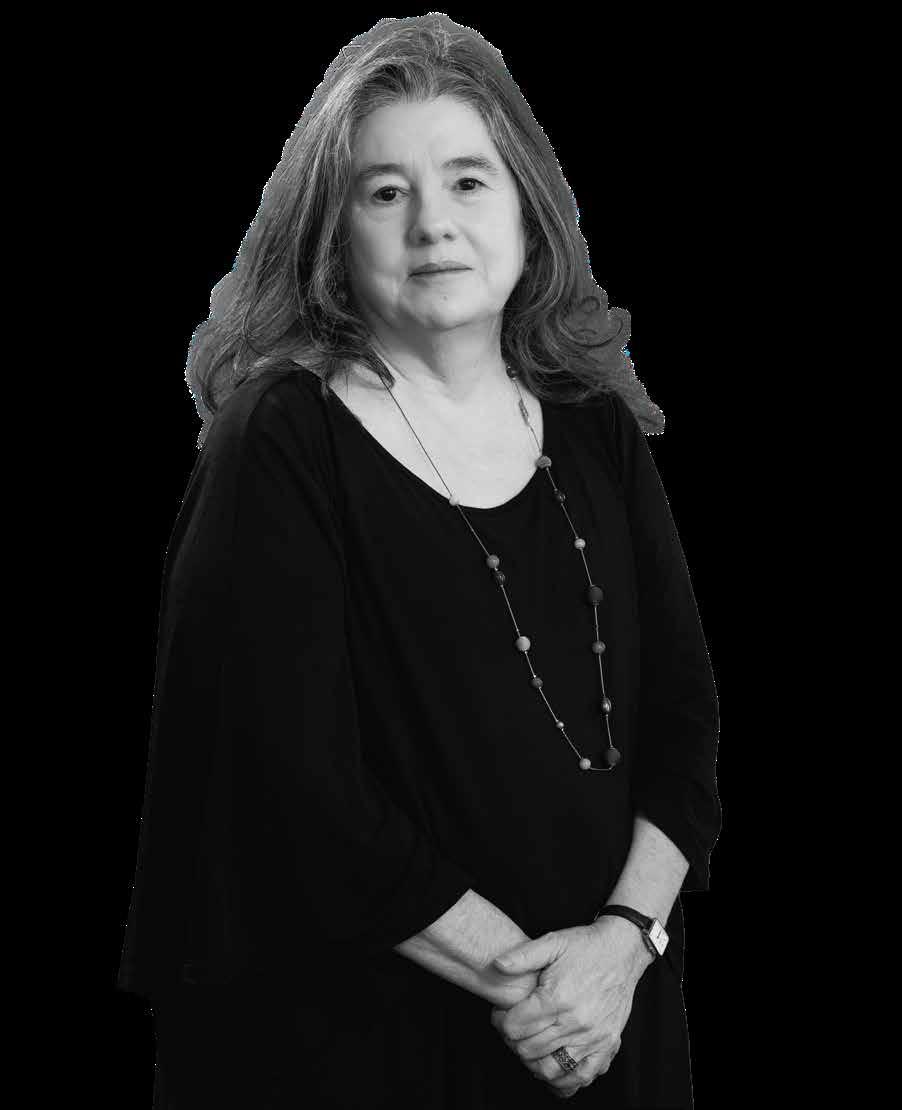




Senior Deputy Vice-Chancellor: Academic, Professor Ruksana Osman
A champion for diversity, excellence through education and inclusion
Professor Ruksana Osman has a life-long association with Wits University spanning all levels of institutional management, governance and leadership. Her representation of women in higher education, both locally and globally, is particularly significant. Her service to basic and higher education, her contribution to the sector, and her global research footprint, make her one of the leading academics on the continent.
Prof. Osman holds the UNESCO Chair in Teacher Education for Diversity and was awarded an Honorary Doctorate in Education by Bath Spa, a UK based University, in October 2024. The award recognises the contribution that Professor Osman has made in academia, to the Wits community, to the humanities, and to the higher education sector more broadly. While we relish in the recognition of our Senior Deputy Vice-Chancellor by Bath Spa, this also brings to the fore, the need for Wits to do more to celebrate ‘its own’.
Professor Osman has touched the lives of many people across the University and her commitment is borne out in the many initiatives that she has championed and the people that she has mentored – from former and current Deans to Deputy Vice-Chancellors and professional and administrative staff, and PhD students to colleagues across the globe. Her humanity and capacity to develop and nudge all whom she mentors and interfaces with is significant. Herein, is a collation of the testimonies by some of the many individuals mentored and supported by Professor Osman. The indelible impact that she has had on individuals from all walks of life and with disparate areas of interest and expertise is resounding.
A champion for diversity, excellence, and inclusion, many at Wits have witnessed the deliberate and considered way in which Professor Osman works to ensure that academics, professional and administrative staff, and students bring their whole selves to learn and teach, to research and innovate, and to work in an environment that is diverse and affirming. She spearheaded the Inclusive Professoriate Programme and the Diversifying the Academy Programme at Wits, amongst many other initiatives. Both programmes are aimed at developing young academics and enabling a diverse and inclusive professoriate, but it was the Inclusive Professoriate Programme initiated in 2016, that set the tone for transforming the academy, and given its success, expanded into five other universities in South Africa. The total budget allocated to this project amounted to just over $1 million, with the Diversifying the Academy Programme receiving an injection of R76 million overall. Under Professor Osman’s leadership, several more bids were made and the total budget allocated to the Faculty of Humanities at Wits for capacity development while she was the Dean of the Faculty amounted to approximately R100 million, the largest amount in Mellon’s grant making history to one University.
In her capacity as the Deputy Vice-Chancellor: Advancement, Human Resources and Transformation, she established the first staff wellness programme and the social justice cluster, bringing together the various units within Wits that handle matters relating to justice and wellbeing. This enabled a more coordinated approach to addressing injustices related to race, gender, and ability. The objective was to create a seamless experience for members of the University community – those investigating injustice and those on the receiving end of it.
It also clearly showed the intersectional nature of prejudice and encouraged the University to take a more thoughtful and deliberate approach to justice and wellbeing. As the Senior Deputy Vice-Chancellor, Professor Osman’s stewardship of the Teaching and Learning Plan for the University ensured that life-long and flexible learning opportunities, strengthening institutional capacity, and promoting student success become the cornerstone of the University’s pedagogic aspirations.
Outside South Africa, Professor Osman has been at the forefront of building several transnational partnerships particularly with UK, European, and African universities, all with the objective of capacitating staff and students. Some of these include the Wits Edinburgh Sustainable African Futures (WESAF) doctoral programme, the AFRETEC (African Engineering and Technology) network, and the Future Materials Project.
An internationally renowned educational expert, Professor Osman has worked at Wits for over twenty five years, serving successively as the Head of the School of Education; the Dean of the Faculty of Humanities; the Deputy Vice-Chancellor Advancement, Human Resources and Transformation; the Deputy Vice-Chancellor: Academic and as the Senior Deputy Vice-Chancellor: Academic since 2020. Professor Osman has been convenor of the UNESCO Chair in Teacher Education for Diversity since 2013 and was elected as a Member of the Academy of Science of South Africa (ASSAf) in the same year. She has published widely, with particular interests in equity, access and success in teacher and higher education, and the ways in which teachers and students relate to each other through the scholarship of teaching and learning in higher education. She sees universities as having a transformative role in society, especially in South Africa. A champion of collaboration, Professor Osman is intentional about creating a ‘network of networks’ to share knowledge and talent, transcending regional interests and recognising that the challenges we face – climate change, health crises, or social inequities – are global in nature and require global solutions. She actively advocates for a truly global network of universities which leverages the strengths of diverse educational systems while addressing local needs.
Professor Osman’s contribution to higher education leadership and her contribution to the many people she developed and supported over the years is beyond measure. It is for these reasons that we propose that her lifetime of achievements be recognised.

In every generation, there are leaders who do not seek the spotlight, yet their impact shines through the lives they touch. You are one of those rare individuals – a quiet architect of transformation whose influence reaches far beyond what the eye can see.
Through your steadfast commitment to mentorship, you have inspired students, colleagues, and emerging leaders to believe in their own potential. You have modelled what true transformation looks like – not as a policy or a slogan, but as a daily practice of inclusion, empathy, and purpose.
Your leadership reminds us that transformation begins in the corridors of courage – in listening deeply, nurturing talent, and creating spaces where everyone belongs. You have shown that mentorship is not an obligation, but a calling – a ripple of empowerment that continues long after the conversation ends.
Though you may never seek recognition, your impact is undeniable. You are the heartbeat of a transformative university community – guiding, uplifting, and mentoring with humility and grace. Through your unwavering commitment to mentorship, you have planted seeds of courage, resilience, and excellence in others. You have opened doors for those who once stood at the margins, showing that true leadership is not about power, but about empowerment. Your actions remind us that transformation begins with compassion – with the willingness to lift others as you climb.
You are the heartbeat of change, a mentor who shapes futures, and a visionary who believes in the potential of people. Though you may not always be celebrated in headlines, your legacy lives on in every transformed life and every mentee who now dares to lead.
On a personal note, you’ve always been there for me and FALF, supporting, guiding, never judging!
Today, we pause to say thank you. Thank you for leading with integrity, for mentoring with heart, and for proving that lasting transformation is built through service, not status.
“A good leader inspires people to have confidence in the leader; a great leader inspires people to have confidence in themselves.” Eleanor Roosevelt
Thank you, Ruksana – you are our CHAMPION & HERO!
Dr Judy Dlamini
Wits University Chancellor; FALF Founder & Chairperson
You are one of those rare individuals – a quiet architect of transformation whose influence reaches far beyond what the eye can see.

Dr Judy Dlamini
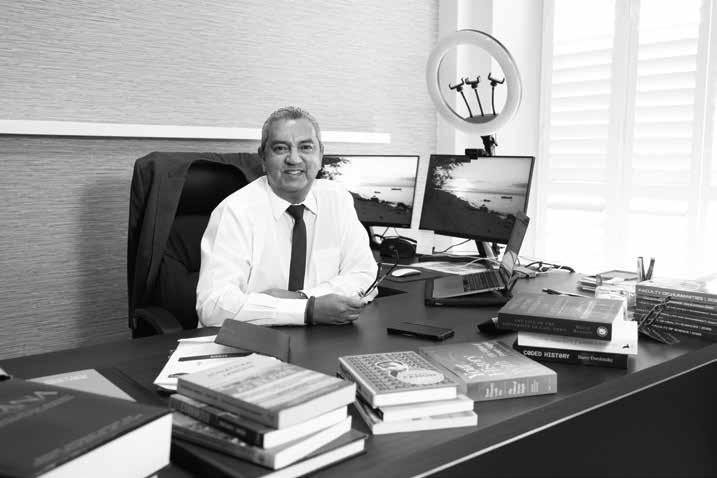
It is with absolute pleasure that I write the following testimonial as a reflection on Professor Ruksana Osman’s contributions as an academic, scholar, researcher, practitioner, and institution-builder in the higher education sector, and at the University of the Witwatersrand in particular. Importantly, this is also a deeply personal testimony of the role that she has played as a mentor to me as an academic, Dean, and Deputy Vice-Chancellor over the course of the last two decades.
I have known Professor Osman and had the privilege of working closely with her as an academic and in institutional leadership positions for more than two decades: first in her capacity as the Head of School at the Wits School of Education; as Acting
Dean of the Faculty of Humanities; as Dean of the Faculty of Humanities; as the Acting Deputy Vice-Chancellor: Advancement, Human Resources and Transformation; as Deputy Vice-Chancellor: Advancement, Human Resources and Transformation; and most recently, as the Senior Deputy Vice-Chancellor: Academic. The evolution of her leadership role is not per chance in my view, and is more directly attributable to her remarkable self-discipline, intellectual acuity, strategic insightfulness, interpersonal dexterity, and communicative ease with others. Prof. Osman embodies a career academic who has amassed the necessary skills, expertise and vision to anticipate the changing nature of higher education and the complex national, continental and global
She has several decades of direct experience in the higher education sector in South Africa, but more importantly has cut her professional teeth at all levels of the education sector in South Africa – as a teacher in basic education, as one involved in teacher training, as leading a key university school on teacher training, as a faculty executive, and as a member of the senior executive team of the University of the Witwatersrand. To my mind, this has provided her with an exceptional overview of the educational terrain, its challenges, its nexus points, and its potentialities. Beyond higher education, she therefore has the perspective to appreciate the complex architectures of the terrain, but also how higher education is both integrally connected to basic education and inserted into a macro-context with multi-faceted social, economic, political, intellectual and cultural imperatives.
With the above in mind, she has been deeply cognizant of the innovative possibilities of the higher education sector and its relationship to the contemporary global knowledge economy, but has also been extremely mindful of its contestations and internal contradictions. Holding this level of perspectival complexity is a key characteristic that she brings to her leadership style. It has allowed her to plan short-, medium- and long-term strategic objectives within her various leadership positions, and to marshal people and resources in the service of strategic academic and intellectual initiatives. But, this has simultaneously been matched by her operational efficiency in the execution and administration of her strategic plans. She has circumvented the growing tendency for cascading delegation in large institutional settings, is ‘hands-on’ operationally, but avoids micro-managing others. This has been another central component of her leadership style and her management of diverse teams in intricate environments. Her highly effective stewardship of all her portfolios extended into a historical moment where we had to contemplate the real impact of COVID-19, but also how it has illuminated the fault lines, fractures, and new possibilities for higher education in the foreseeable future.
It is also no small feat that she has been front and centre in institutional leadership portfolios in two of the most challenging periods in the recent history of the higher education sector. The apex of the first period was in 2015-2016 and generated robust debates, imperatives for institutional change, leadership contestations, and questions about the very heart and soul of the public university. The Humanities Faculty was deeply
embedded within this moment, and the abiding respect that she continues to elicit from her colleagues should be testament to her exemplary capacity to ethically hold together diverse groups of people with sometimes diametrically opposed views. The second period is the one in which we had to manage the COVID-19 pandemic and its social and educational impacts. Her capacity to crisis-manage, work at the level of detail, hold complex and multiple imperatives simultaneously, and still be engaged with the high-level debates pertinent to higher education, have been features of her functioning. Part of this outcome is related to her communicative style, which is characterized by transparency and fairness. She is engaged, attentive, sober-minded and reflective, but speaks her mind and is comfortable holding positions that are not mainstream in crucial debates and decisioning processes. This has not only allowed her to work across and with diverse teams of people, but also to identify latent talent amongst those with whom she engages, and to optimize and harness their potential through supporting them through developmental and leadership opportunities. The combination of being intellectually gifted, strategically-oriented, ethical, consummately efficient, forthright, yet personable and generous, is a summation of her everyday leadership style.
In her various capacities, she has demonstrated a nuanced understanding of foregrounding Wits as an attractive institutional prospect for partnerships, seeking out equally attractive organizational opportunities externally, ensuring reciprocal collaborative engagements and outcomes, identifying and recruiting talent, and being attuned to tactical advantages and strategic opportunities to enhance the academic and intellectual project and the standing of Wits as an institution. She has been alive to the local stakeholder and donor environment, understanding both its precarity and yet optimizing relationships and possibilities for access to them. She appreciates the complicated and changing relationship with Science Councils, understands the need to engage smaller culturally- and politically-oriented funders, as well as their larger grant-making counterparts. Continentally, she has a keen understanding of the need to engage Africa as an African university, so is mindful of key institutions and structures on the continent as well as the funding opportunities that may be present. Northern funders and philanthropies have also been a key site of engagement for her, and she has an intimate knowledge and sets of relationships with Carnegie, Mellon, Mastercard, Rio Tinto, and Ford, amongst others.
Other key functions and portfolios that she has managed have included both Human Resources and Transformation. As mentioned earlier, her experience at multiple institutional levels has provided her with invaluable expertise from the coalface that has resulted in translational change opportunities in more centralized spaces where these functions also exist. She is always contemplating what the new frontiers of difference, exclusion and othering are likely to be, beyond the already important race, gender, and disability cleavages that pervade South African society – as an embedded orientation that guides her approach to managing human and intellectual resources.
At a personal level, I have had the privilege of being mentored by her since being a young academic when I first arrived at the institution. She was, and remains, generous with her insights, sound counsel, forward looking perspectives, and support – all of which have been central to my own pathway in the higher education sector and at the University of the Witwatersrand. While leading robustly from the front, she continues to champion others without hesitation, cheering them loudly as they attain new milestones, and celebrating with them their achievements. This is the hallmark of servant-leadership – the constant recognition that we are only temporary custodians in the leadership positions that we occupy and that it is incumbent upon us to build a new layer of that leadership without any trepidation that it may negatively impact on ourselves. To this end,
temporary custodians in the leadership positions that we occupy and that it is incumbent upon us to build a new layer of that leadership without any trepidation that it may negatively impact on ourselves. To this end, Prof. Osman has undoubtedly been one of the most influential mentors in my personal journey, and the consummate companion in this journey for which I will be eternally and deeply grateful.
Sincerely,
Prof. Garth Stevens
Deputy Vice-Chancellor: People Development and Culture, University of the Witwatersrand
While leading robustly from the front, she continues to champion others without hesitation, cheering them loudly as they attain new milestones, and celebrating with them their achievements.
Prof. Garth Stevens
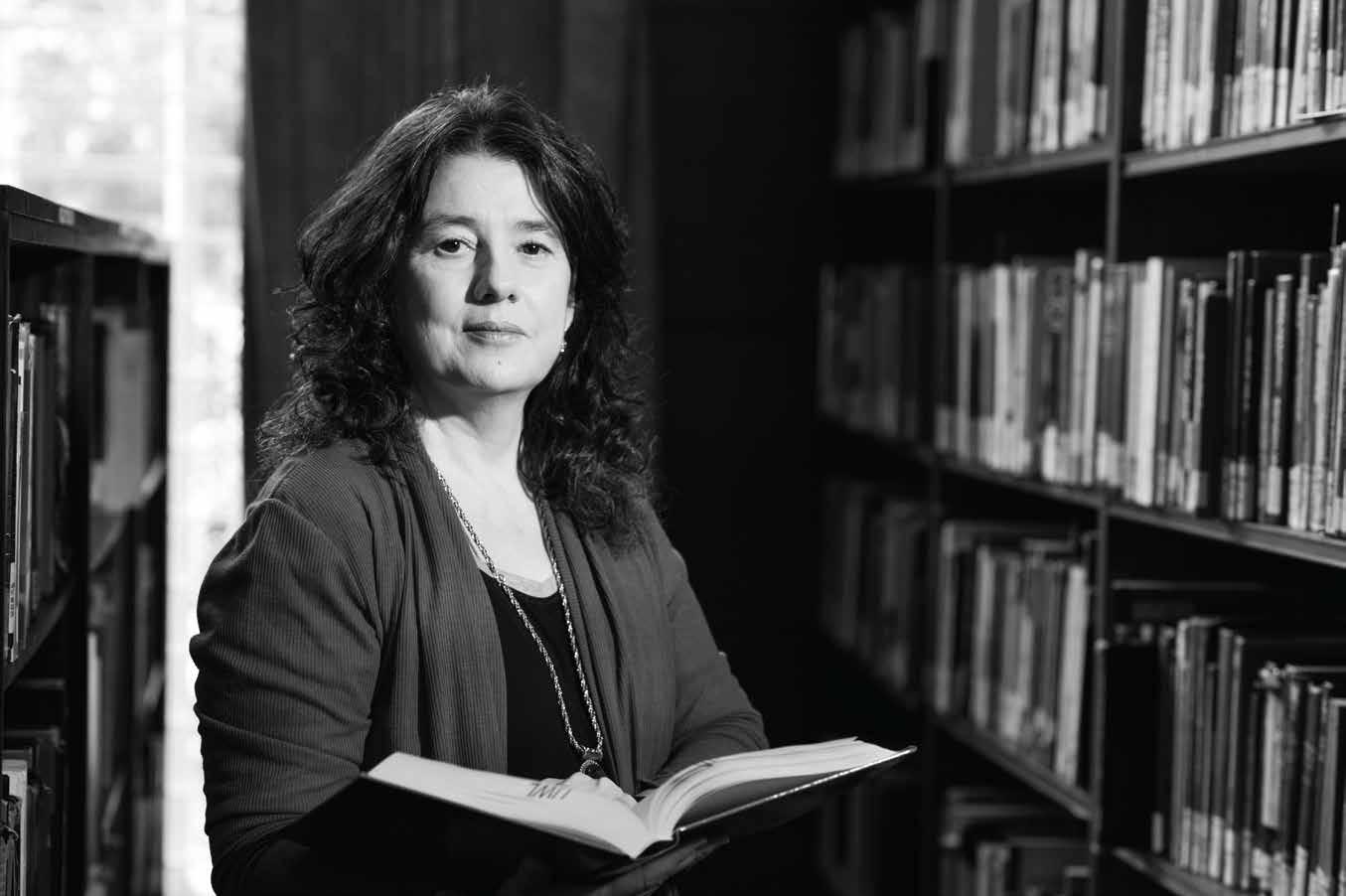

I met Professor Ruksana Osman during my undergraduate studies at the Wits School of Education. At the time, I was deeply troubled by acts of discrimination against myself and other students living with disabilities. I had already lost faith in the University’s officials, who had failed to act on the egregious injustices we faced. At the time, I thought speaking to her would be like just another attempt that would be noted and forgotten, with little to no hope for change. However, my first impression of Professor Osman was of someone warm and welcoming. She gave me her time and listened attentively. Noticing my distress, she gently lightened the mood by wryly asking if I realized how short she was compared to how tall I stood. She then asked me to touch her head so I could “understand” – a moment that made us both
laugh and marked the beginning of a lifelong relationship. Since then, I have come to think of her as my academic mother as she supported my studies within and outside Wits – the most recent being when I pursued an MA in Podcasting at City, University of London.
Professor Osman is heartbreakingly kind and compassionate in a world that is often cold and intolerant. She is generous, wise and profoundly intellectual. Above all, I cherish her sincerity and honesty, especially in moments when she guided me after I erred.
Mr Melusi Ncala, Master’s Student
Professor Osman is heartbreakingly kind and compassionate in a world that is often cold and intolerant. She is generous, wise and profoundly intellectual.
Mr Melusi Ncala
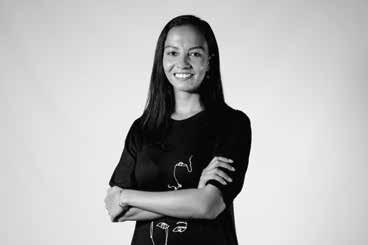
The day I first met Prof. Osman she walked into my office in Robert Sobukwe on a Friday afternoon. She knocked and came in saying "Hello Nicole, I'm Ruksana" - like I didn't know who she is! But I did not expect her to know who I was. At the time I was a Senior Lecturer and a very quiet person. We chatted for a while and when she left, she said we should have tea sometime. The next week a meeting invitation was sent inviting me to her office, the Dean’s office, for tea. I was excited and nervous, thinking maybe I had done something wrong. But I could not be more wrong! Tea was lovely. We spoke about my career, what I was working on and how I was enjoying the School. This was 10 years ago and since then, despite how busy Prof. Osman gets, she always made time to check in with me and see how I was doing. As I achieved my
NRF rating, Assistant Dean posts and Head of School position, she always sent me a congratulatory message.
Prof. Osman, from the moment you walked into my office and greeted me so warmly, you made me feel seen and valued. That simple gesture – inviting me for tea – became the beginning of a mentorship that has shaped my career and confidence in ways I never imagined. Thank you for believing in me before I believed in myself. Tea in your office wasn’t just tea – it was the beginning of a relationship that gave me courage, clarity, and a sense of belonging. You’ve shown me what leadership with heart looks like, and I carry that example with me every day.
Nicole
De Wet-Billings
, Senior Director: Academic Affairs
Tea in your office wasn’t just tea - it was the beginning of a relationship that gave me courage, clarity, and a sense of belonging.
Nicole De Wet-Billings

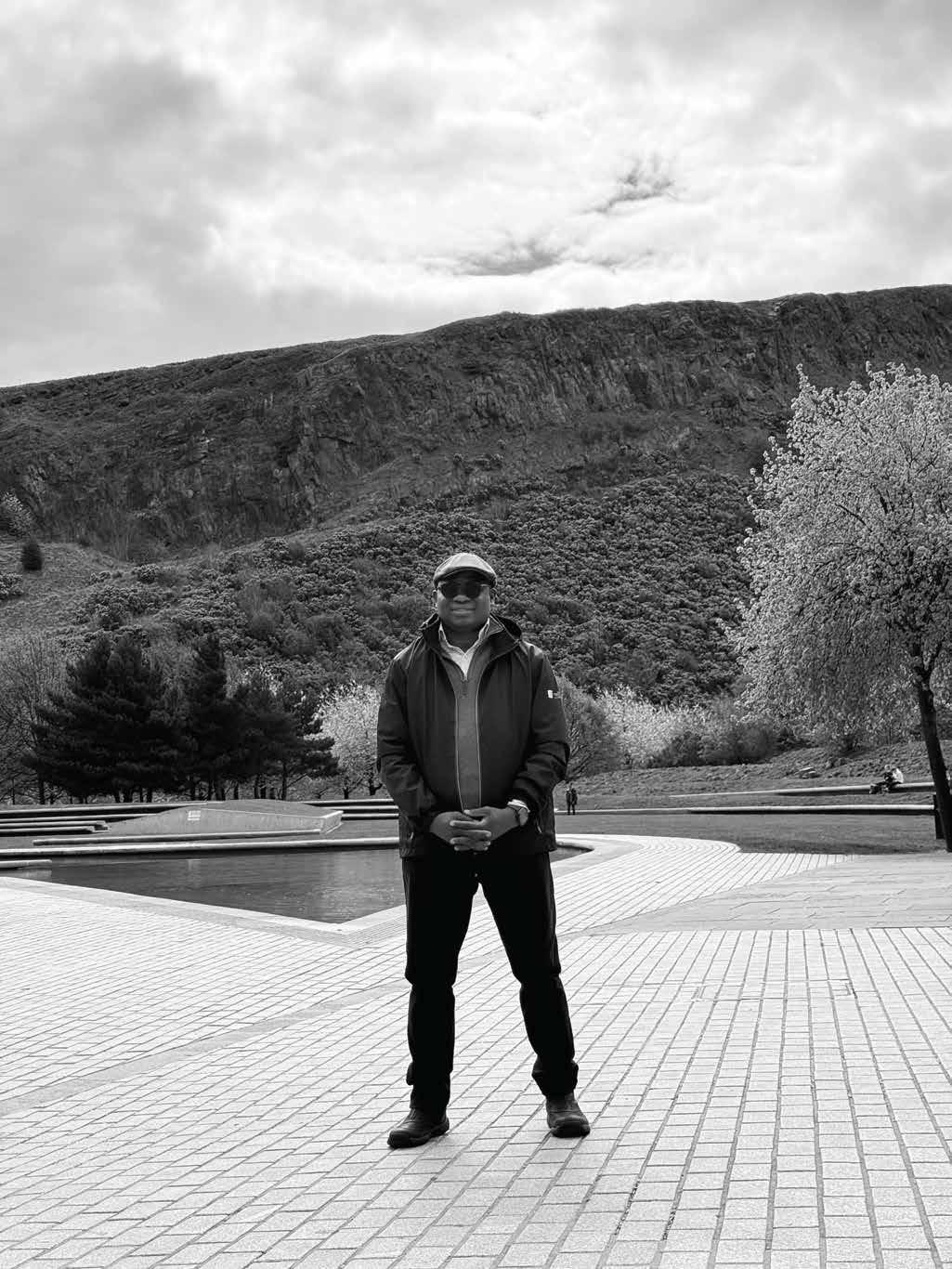
It would not be an exaggeration to say that Professor Ruksana Osman’s mentorship has been the single most transformative influence in my academic journey at the University of the Witwatersrand. From the earliest stage of my career, her belief in my potential opened doors I could never have imagined. Through her, I received funding under the NRF-SIDA Collaborative Project ‘Phenomenographic Horizons’, which enabled me to travel to Sweden to present a preliminary version of my Master’s thesis at the SIG-9 Conference. That experience marked a decisive turning point in my academic life, expanding my intellectual horizons and grounding my lifelong commitment to scholarship. Her mentorship has since remained a constant source of wisdom, strength, and clarity: steady, humane, and profoundly insightful.
Beyond her brilliance as a scholar and leader, she has modelled what it means to be a whole person in academia: intellectually rigorous, ethically grounded, and deeply compassionate. Every major milestone in my academic career bears the imprint of her influence. Through her, I have learned the power of reflective leadership, the discipline of purpose, and the grace of service. To acknowledge her influence is not a courtesy. It is a truth I live by daily. She remains, without question, the most important person in my academic life at this university.
Prof. Emmanuel Ojo, Deputy Head, Wits School of Education
Professor Ruksana Osman’s mentorship has been the single most transformative influence in my academic journey at Wits.
Prof. Emmanuel Ojo

I can only speak from the heart when reflecting on the profound impact Ruksana has had on both my life and my wife’s. Michelle and I met in 1996 during our first year of teacher training at what was then JCE. We’ve been together ever since. On that very first day, Ruksana lectured us, and from that moment, she became a cherished part of our lives. We've remained close family friends ever since.
My professional journey in education might seem typical: I progressed steadily from teaching high school biology and geography in the classroom to roles as Grade Tutor, Head of Department, Deputy Principal, and eventually Principal. But what made this journey truly extraordinary was Ruksana’s unwavering presence. She consistently
stayed in touch, encouraging me to embrace lifelong learning and pursue academic growth alongside my career in education. It was Ruksana who gently nudged me to complete my honours degree. Later, she chose to supervise my Master’s in Education by Dissertation. That mentorship continued as she co-supervised my PhD with her long-time friend and collaborator, Professor Elizabeth Walton. As our professional relationship deepened, I took on a Postdoctoral appointment under Ruksana’s and Elizabeth’s guidance, all while serving as a school principal. Balancing these roles was no small feat, but Ruksana’s belief in me never wavered. She made me feel that anything was possible. Her support enabled me to transition from the school yard to the academic world at Wits. Today, thanks to Ruksana’s influence, I’ve achieved my lifelong dream: to contribute meaningfully to teacher and school leader education, not just at one school, but on a national scale.
While her mentorship has shaped my career in countless ways, the greatest gift has been our enduring friendship, which now spans nearly 30 years. As my daughter prepares to matriculate this year, Ruksana remains a part of our lives, sharing in this milestone. In the end, what truly matters is how we lift others as we rise. Like a stone cast into a pond, the ripples of kindness and support travel far beyond the initial splash. Ruksana has always lifted me, and now, all I can do is pay it forward.
One more thing, what I treasure most is our long chats about all things to do with life, research, and education. This is a friendship and a gift to my life that can never be replaced or replicated.
Prof. Douglas Andrews, Lecturer: Education and Policy Leadership
A friend and mentor whose support has shaped my life for nearly 30 years.
Prof. Douglas Andrews
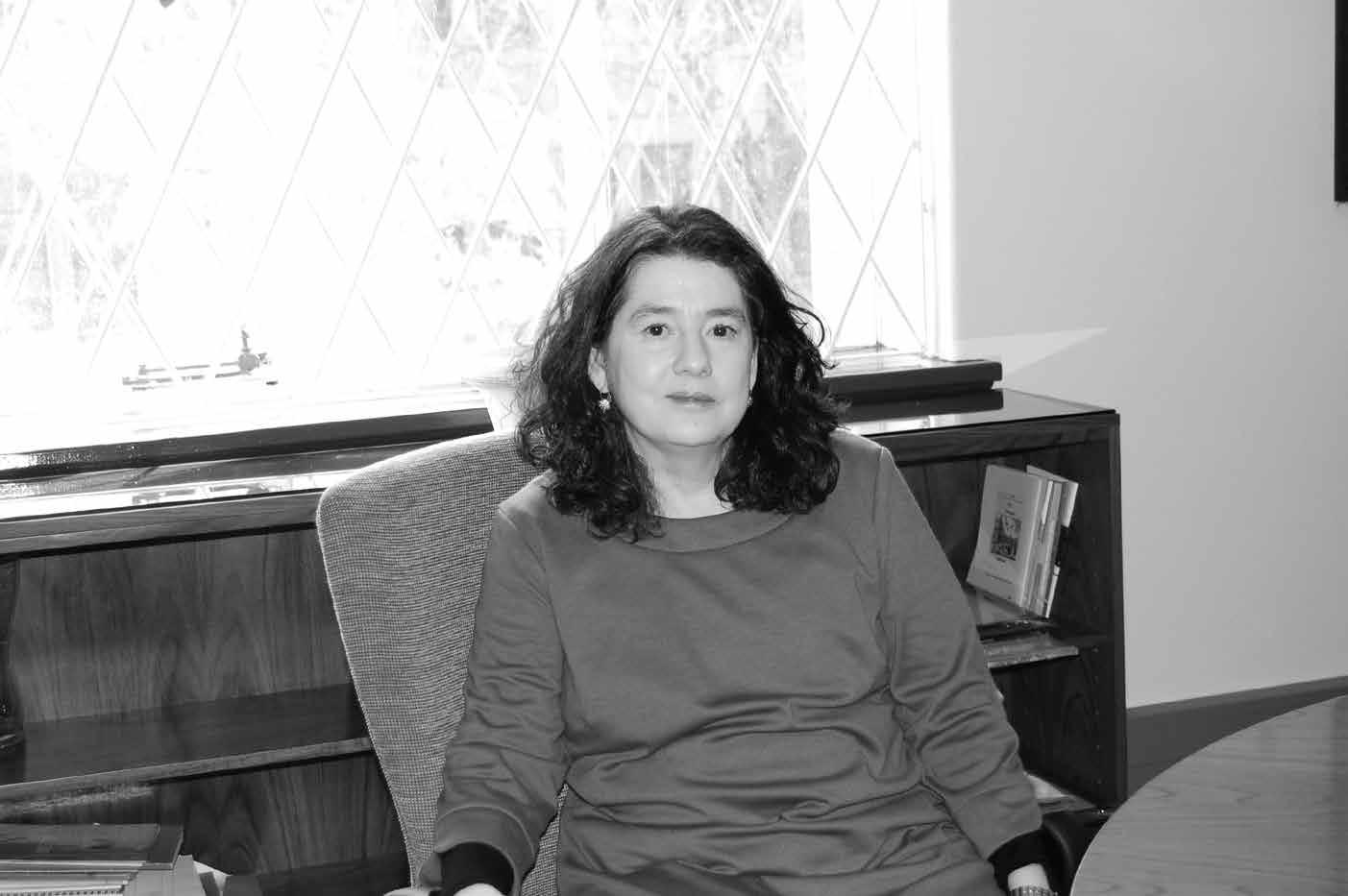
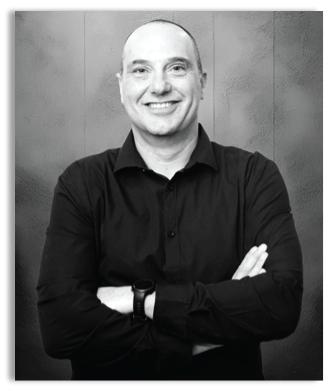
Prof. Ruksana Osman has been foundational to my development as an academic, strategist and leader. She exemplifies the kind of authentic commitment to mentorship and leadership that defines an academy for good. Since our early introductions in her role as Dean of the Faculty of Humanities, she has been steadfast in her support when I have wavered, compassionate and wise in her advice when I have been uncertain and magnificently measured in her critique when I have needed it. This uncompromising commitment to my own professional journey has never faltered, even in her frenetically demanding role as Senior Deputy Vice-Chancellor. Prof. Osman represents all that is inspirational and aspirational in an academic leader. Her investment in others has indelibly made its mark on the knowledge and leadership pipeline at Wits and beyond.
Prof. Brett Bowman, Senior Director: Research and Innovation
She exemplifies the kind of authentic commitment to mentorship and leadership that defines an academy for good.
Prof. Brett
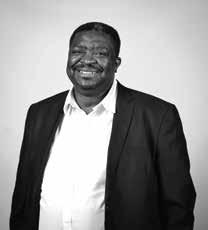
My initial encounter the time she acted as the Dean in the Faculty of Humanities at the University. When she ascended to the position of Deputy Vice Chancellor years later, I came to understand the person behind the title. She was a pillar on whom I could lean on for professional support. This was because of the manner in which she approached issues; she was able to carefully balance the issues against the institutions with Professor Osman began during mandate but in a way that acknowledged the humanitarian principles she lives by, she has always reflected care and support for others even in the midst of crisis.
Two main examples come to mind in raising this point. Firstly, during 2019, when the
previous director of the Legal Office left the institution, the office was left without a director. During that time, Professor Osman entrusted the affairs of the office to me and was always available to provide advice and never once missing an opportunity to further support and guide the office during difficult times. This opportunity not only provided me with professional growth, but it also demonstrated one of her strengths; the ability to uplift others. Secondly, when dealing with students who struggle with mental health issues in terms the University’s Rule 6.6 process, Professor Osman’s approach has always been to prioritise the well-being and dignity of the students involved by maintaining that helping students requires one to conduct more than just a tick box exercise, thereby acknowledging and encouraging an approach that seeks to provide students with meaningful support.
Nkosinathi Mavimbela, Operations Manager: Wits Legal Office
Her leadership balances humanity with institutional purpose.
Nkosinathi Mavimbela
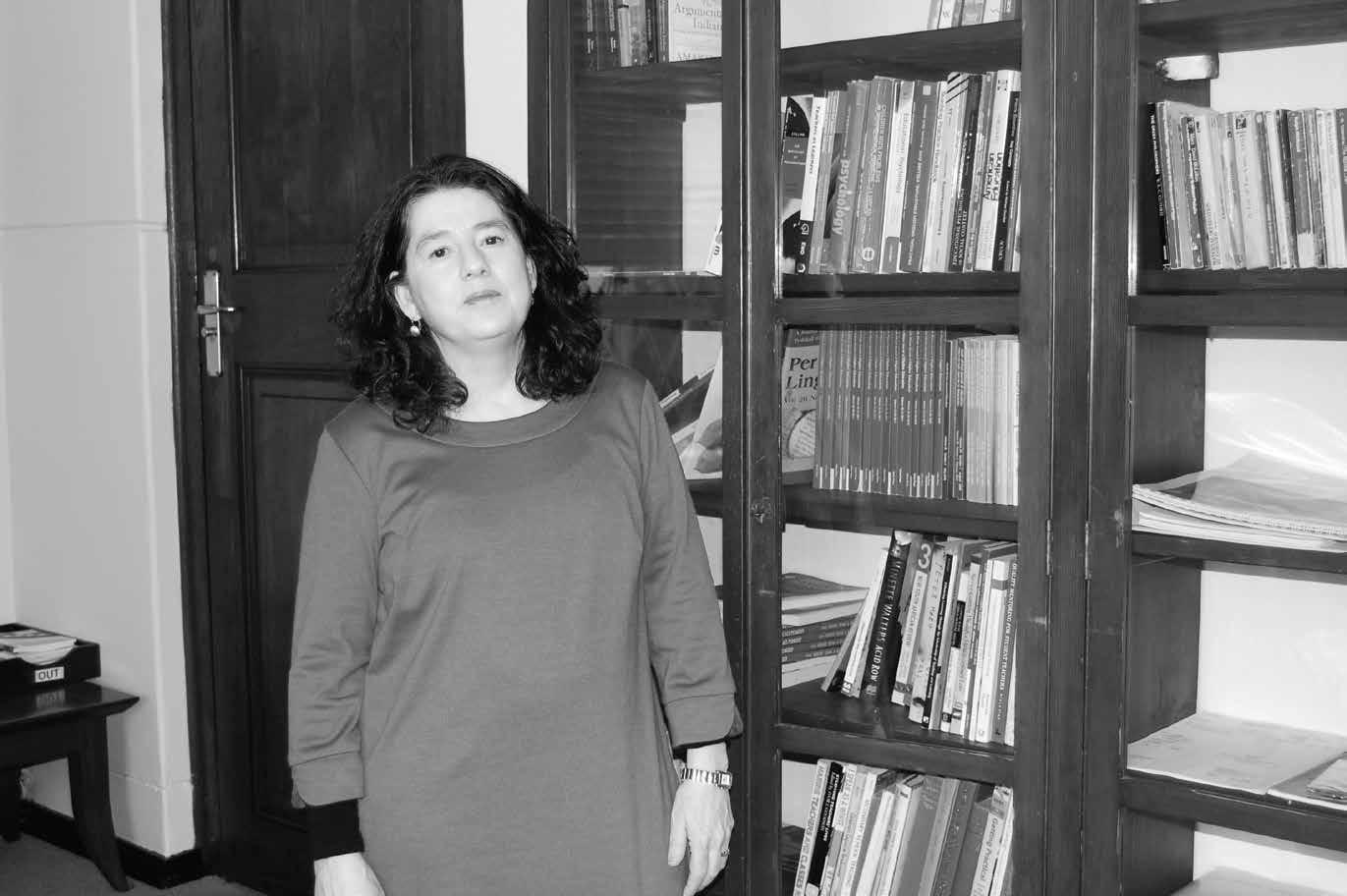

I have known Ruksana for more than a decade, since her days as the Head: School of Education. In my early days at Wits I did not know many people, least of all people in Education, as I was quite far removed from that school and the Faculty of Humanities more generally. Yet, somehow, Ruksana came to hear about me and invited me to a lunch at WAM. Since that initial meeting, we have always kept in touch. She has provided wonderful mentorship as I grew my career in academia. When three of my colleagues and I co-edited a book, she offered to provide guidance based on her own experience of editing scholarly books; in fact, she eventually wrote the foreword to that book, which was published through African Sun Media in 2024. More recently, Ruksana agreed to serve as one of the referees for my promotion to Associate
Associate Professor, which speaks to the very high regard I have for her as a leader and a mentor. She remains an inspiration and honouring her in this way is well-warranted.
Danie De Klerk, Associate Lecturer: Faculty of Commerce, Law Management Teaching and Learning Centre
She has provided wonderful mentorship as I grew my career in academia.
Danie De Klerk
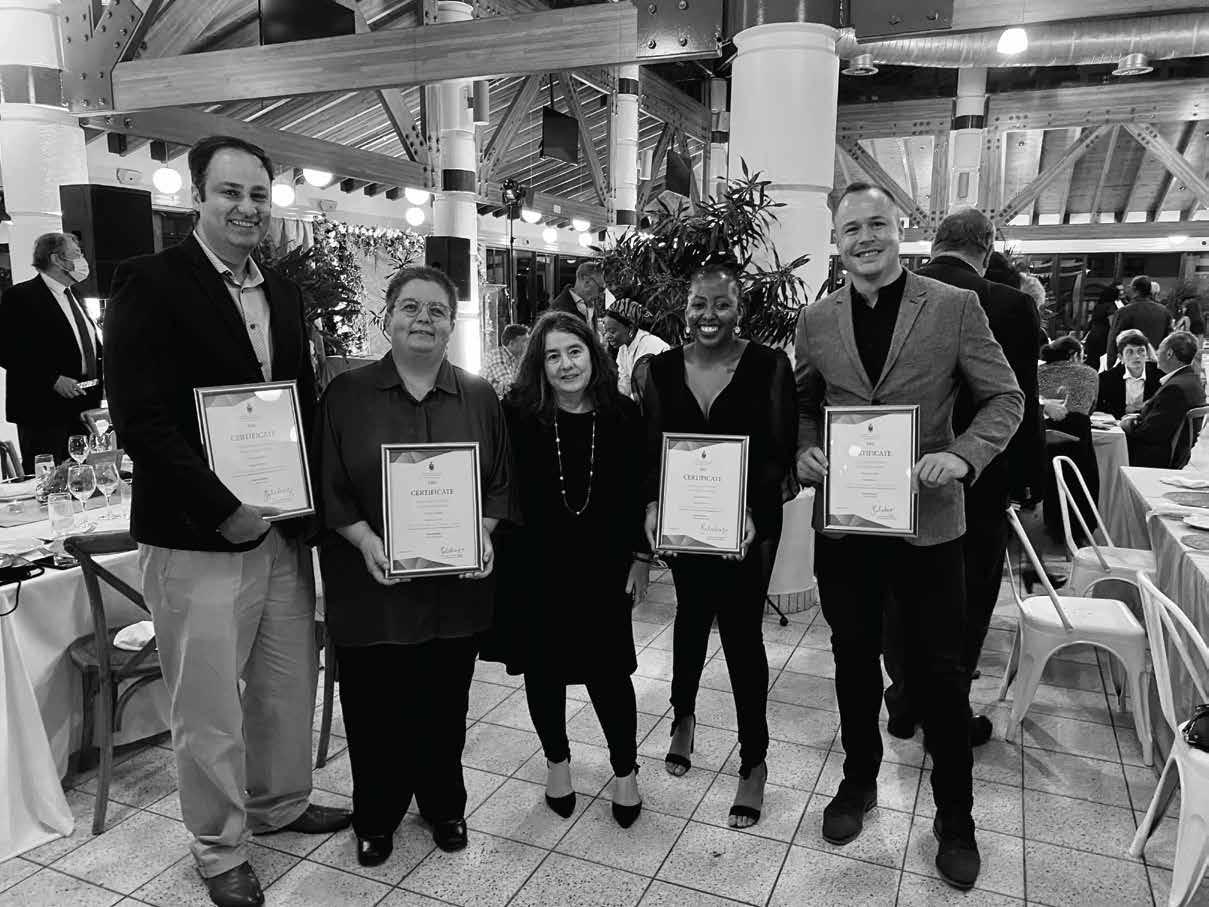
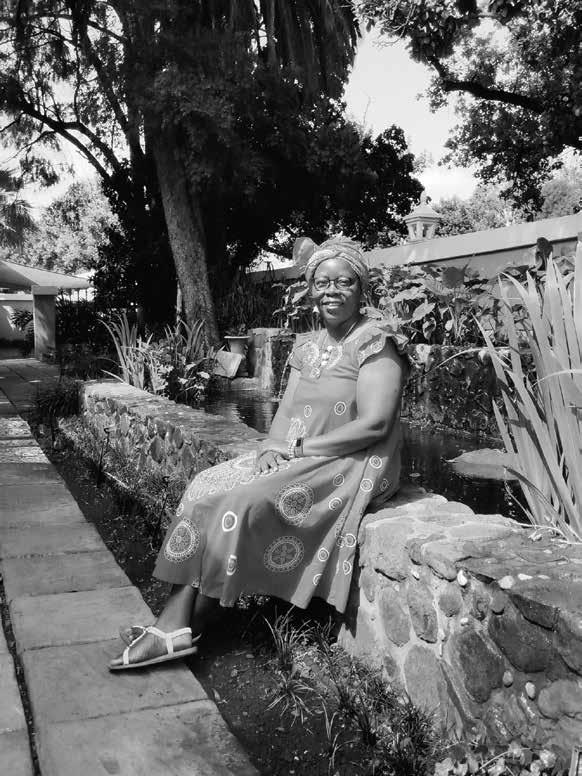
I would like to express my strong support for the recognition of Professor Ruksana Osman’s outstanding contributions to academia, particularly her unwavering commitment to mentoring and supporting fellow academics throughout her distinguished career at the University of the Witwatersrand.
I have had the privilege of being one of Prof. Osman’s mentees for over 12 years. Our journey began in 2013 when, as a PhD student, I was invited by her to join the UNESCO Chair in Teacher Education for Diversity and Development project. This initial invitation marked the beginning of a long-standing professional relationship that has continued to flourish. Today, I am honoured to lead Theme 5 of the UNESCO Chair project, focusing on Transformation, Innovation, Digital Technologies, and
Prof. Osman’s belief in my potential has been a transformative force in my career. Her mentorship instilled in me the confidence to embrace leadership roles, including serving as Head of the Science Division in 2020 and currently as Director of the Marang Centre for Mathematics and Science Education. Her support has empowered me to thrive as a STEM educator and to believe deeply in my own capabilities.
Earlier this year, Prof. Osman once again demonstrated her commitment to nurturing academic growth by inviting me to serve as the Wits discipline leader in the Erasmus+ project: Transforming STEM Teacher Education in South Africa through Self-Directed Open Educational Practices (TED SOEP). This initiative fosters collaboration between South African and European institutions, promoting the integration of Open Educational Resources (OERs) and Open Educational Practices (OEPs) in STEM teacher education. Her words to me were “I am inviting you because this will be a good experience for you, with lots of collaboration opportunities and network building”. These words perfectly encapsulate who Prof. Osman is, a mentor who sees potential, creates opportunities, and builds communities of practice.
Prof. Ruksana is involved in so many projects and works with numerous academics, all while fulfilling her demanding responsibilities as Senior Deputy Vice-Chancellor: Academic, that I sometimes wonder if her day is longer than 24 hours. Her ability to remain deeply engaged, responsive, and generous with her time is truly
In yet another powerful act of support and recognition, Prof. Osman nominated me for the prestigious AFRETEC Inclusion Award, which I was honoured to receive at the 2025 Gender in STEM Forum in on 12 Feb 2025 in Rwanda. This award celebrates individuals who are advancing inclusive practices in STEM education across Africa, and being selected was a deeply affirming moment in my career. That Prof. Osman saw this potential in me and took the initiative to nominate me speaks volumes about her commitment to uplifting others and creating spaces where diverse voices in academia can be seen, heard, and celebrated.
Prof. Osman’s mentorship has not only shaped my academic trajectory but has also contributed significantly to the broader transformation of teacher education in South Africa. I wholeheartedly support her recognition and commend her for the profound and lasting impact she continues to make.
Dr. Eunice Nyamupangedengu, Associate Professor in Science Education and Director: Marang Research Group
Her support has empowered me to thrive as a STEM educator and to believe deeply in my own capabilities.

Dr. Eunice Nyamupangedengu
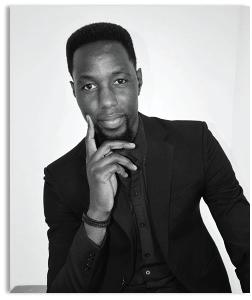
I first had the privilege of interacting with Professor Ruksana Osman in 2020, when she was appointed as Deputy Vice-Chancellor: Academic, during the Senate Teaching and Learning Committee meetings. From the outset, it was evident that she was deeply committed not only to improving the technical and environmental aspects of teaching and learning at the university but also to fostering a supportive and empowering environment for academic, professional, and administrative staff. What particularly stood out to me was her genuine interest in people, she took the time to learn everyone’s name, understand their roles, and show interest in their professional development.
Our interactions deepened through the AFRETEC Network, an Africa-wide Network, sponsored by the Mastercard Foundation, where I witnessed firsthand her exceptional leadership, her vision for expanding access to quality education across the continent, and her ability to connect local, regional, and international partners to achieve meaningful cross-continental collaboration. I have long looked up to Professor Osman for her achievements as a scholar, researcher, and leader of global standing, which inspired me to request her mentorship. Despite her demanding schedule, she consistently makes time to meet, meaningfully engages, and offers thoughtful guidance. Her humility and warmth have left a lasting impression on me and have inspired me to adopt the same principle, making time to mentor others, no matter how busy I am.
Professor Osman has been deeply supportive of my passion for transforming Africa through capacity building, higher education development, applied research for industrial growth, and training. Her mentorship has been instrumental in shaping my networks and initiatives across the continent. I am truly honored to have her as a mentor, role model, and visionary leader whose example continues to inspire me both professionally and personally.
Associate Professor, PhD (Eng.), Rodney Genga, Assistant Dean: Strategic Projects; Director: Academic Development Unit, Faculty of Engineering and the Built Environment
Despite her demanding schedule, she consistently makes time to meet, meaningfully engages, and offers thoughtful guidance.
Dr. Rodney Genga
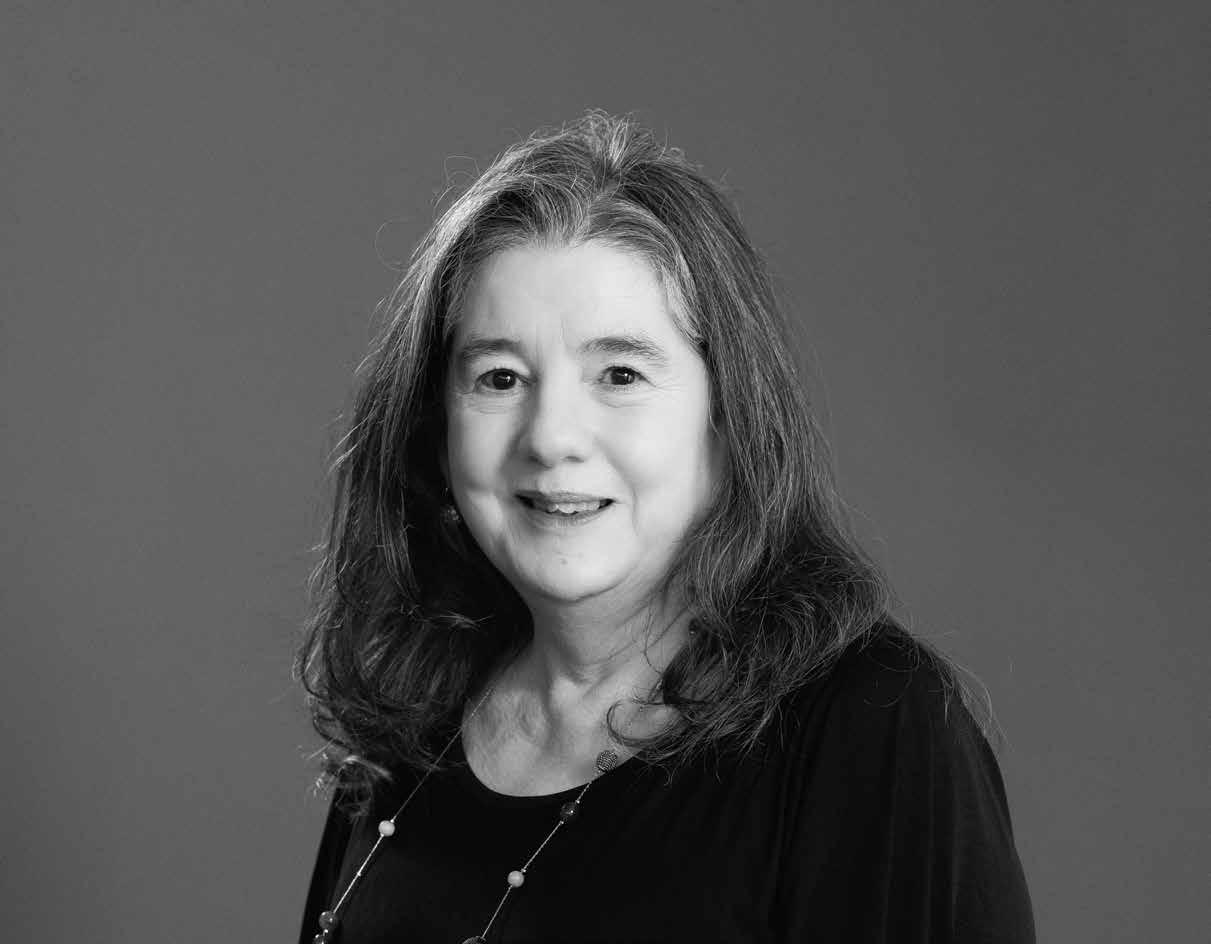

For me, Professor Ruksana Osman is a scholar of profound impact whose contributions extend far beyond the traditional boundaries of academic research. Her work exemplifies the transformative power of scholarship that not only generates knowledge but also nurtures people, ideas, and institutions which I can personally attest to. As an academic leader, she has consistently championed the capacitation and mentorship of emerging scholars, creating spaces where younger academics are empowered to bring fresh perspectives, question conventions, and reimagine possibilities in teaching, learning, pedagogy, and research.
Her visionary leadership is defined by a deep commitment to collaboration over competition, fostering an environment where collegiality and shared purpose drive innovation. Professor Osman’s approach to leadership embodies inclusivity, intellectual generosity, and a belief in the collective strength of the academic community. Through her mentorship, she has inspired a generation of academics to pursue excellence with integrity and compassion, shaping not only their professional trajectories but also the culture of scholarship within the institution.
As a scholar, her intellectual work reflects a deep understanding of the transformative role of higher education in advancing social justice and human development. As a leader, her vision and values have become embedded in the institutional ethos of the University of the Witwatersrand. Professor Osman’s legacy is one of empowerment, collaboration, and visionary thinking. Her legacy will continue to shape Wits’ academic trajectory and inspire generations of scholars to come.
She has inspired a generation of academics to pursue excellence with integrity and compassion.
Prof. S. Laher
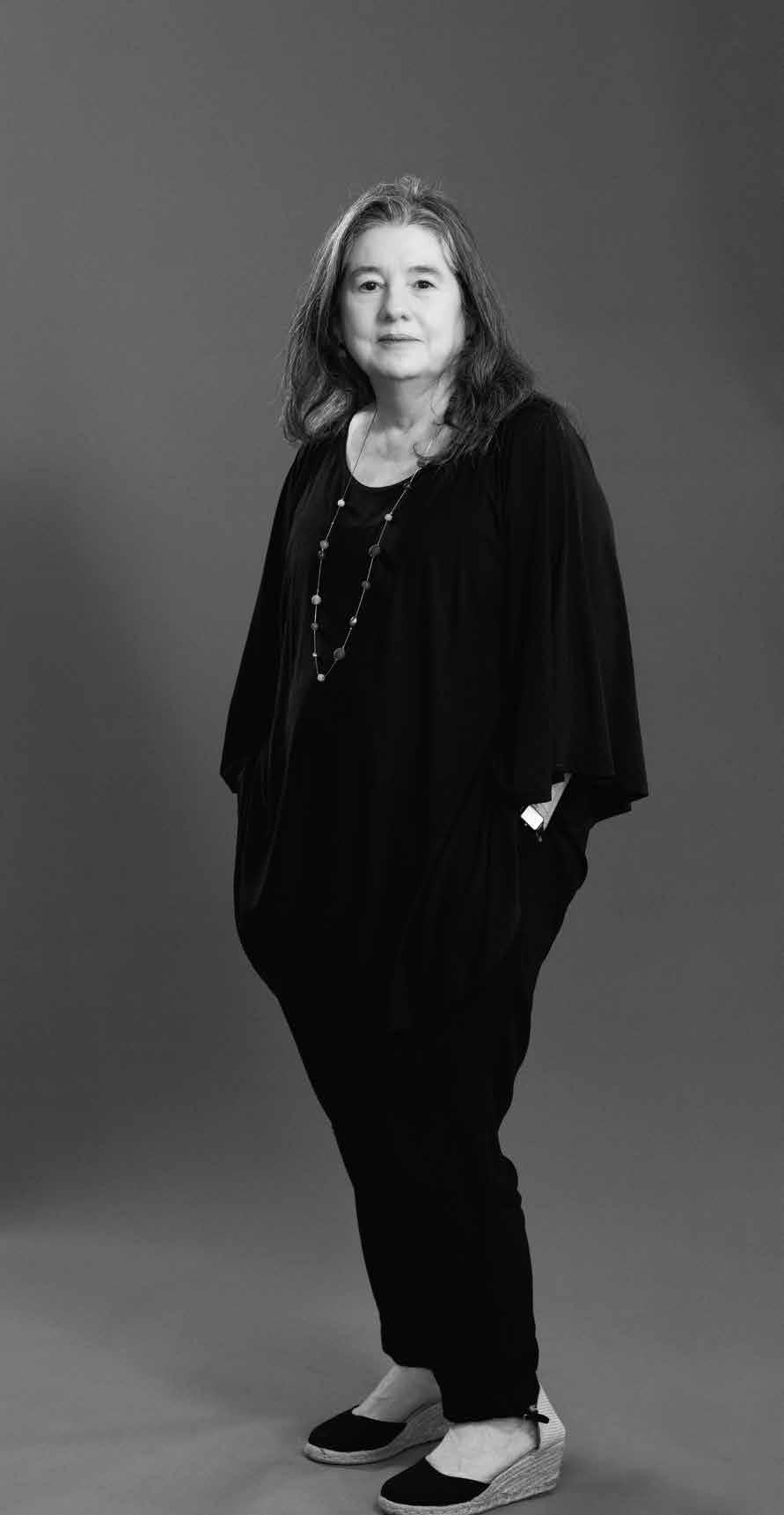
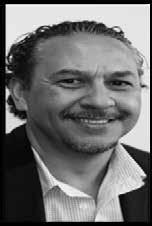
There are few moments in life when we are given the privilege to express, with honesty and depth, what someone has truly meant to us. Today, I am filled with joy and gratitude as I celebrate a remarkable woman – a mentor, a colleague, a sister, and a friend – Professor Rukshana Osman.
Our paths first crossed in 1990 at Rand College of Education, where she lectured in Education Theory, focusing on the Gifted Child. From the very first day, her discipline and love for teaching, her quiet strength, and her unwavering belief in the
the potential of every student left an indelible impression. I still remember how she introduced us to “group work” – a fresh, even radical idea in the context of disadvantaged schools at the time. With her characteristic brilliance and warmth, she not only taught us the method but illuminated the philosophy behind it: that learning is relational, collective, and deeply human.
Under her guidance, we learned far more than pedagogical strategies; we learned to see our learners, to value their voices, and to trust our own. She awakened in us a sense of agency – to think critically, to act purposefully, and to teach with heart. When that chapter of my journey ended, I left her class not only more skilled but more certain of my place in education.
Years later, after completing my Master’s Degree, our paths crossed again – as though destiny knew I still needed her light. Once more, she saw in me what I had not yet recognised in myself. She offered me the opportunity to teach Education Theory – a gift that led me toward my life’s calling: primary mathematics. Time and again, when I stood at a crossroads – whether academic or personal – it was to her wisdom I turned. Her counsel was always steady, her insight profound, her care genuine.
When I finally decided to embark on my PhD, she was there again, quietly guiding me toward a path that would draw together my strengths and limitations. Her belief in me – and in so many others (Prof. N. Petersen, Dr V. Merkel, Dr S. Morrison – all graduates of the Rand College of Education who Prof. Rukshana Osman taught) – has changed lives, not by creating us in her image, but by empowering us to discover our own.
Professor Rukshana Osman, we thank you. We honour you. We love you. You have given of yourself – tirelessly, selflessly, and with a grace that has shaped generations. May your children, grandchildren, and all who come after know that there was once a woman named Professor Ruksana Osman – who taught with brilliance, led with courage, loved with boundless compassion, and gave more than was ever asked.
As Steve Jobs reminds us:
“The delicate balance of mentoring someone is not creating them in your own image, but giving them the opportunity to create themselves.”
Professor Rukshana Osman, through your mentorship, you have done precisely that – and we are forever changed because of it.
We salute and love you.
Dr. Corin Mathews, PhD in Mathematics
Education, Wits School of Education
A leader who taught with brilliance and loved with compassion.

Dr. Corin Mathews
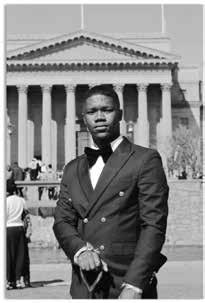
Professor Ruksana Osman's mentorship has been foundational to my development, not merely as a scholar, but as a strategic leader committed to transformative educational and economic development policy in Africa. Her support transcends the traditional advisory role, it has been an investment in my potential to bridge academic rigor with institutional governance and civic action.
Prof. Osman generously offered job shadowing experience into her role as Senior Deputy Vice-Chancellor in Academics where I got to work directly with the Senior Director in Academic Affairs Prof Nicole with all the various bodies under her oversight which gave me direct insight into the complex inner workings of broader
Higher Education Governance, Strategic Policy Development, and Senior Stakeholder Management at Wits. Observing her leadership in high-level forums, from Senate Committees to Council Committee and board meetings, provided me with a masterclass in translating vision into actionable institutional strategy, an invaluable lesson now applied daily in my various roles as the Founding President & Executive Chairman of the Pedagogical Science Institute (PSI) an education and economic development centred NPC that owns and acts as regulatory body to various subsidiary companies in EdTech, AI & Robotics, Economic and skills development, Research and Think-tanks.
Prof. Osman’s mentorship demonstrates her exceptional commitment to nurturing the next generation of African thinkers and doers. She has served as an anchor to the greatest lesson that even though I continue to stand on the shoulders of giants, I am burdened with the responsibility to continue their unfinished work. A task of my generation to use our youthful strength to rid and address all the social ills affecting the world in its times of cataclysmic systemic rapture. Her strategic creation of a mentors network and linkage to specialized academic mentorship, such as the introduction to Dr. Andrews Douglas, was instrumental in shaping my Honours research and more significantly, in developing PSI into a regulatory non-profit with ambitious, systemic objectives spanning accreditation, education and economic development sectoral oversight, and Science, Technology, Engineering, Mathematics, Robotics and Artificial Intelligence (STEMRAI) governance.
The most profound impact of her support is evidenced in my trajectory from a Wits student leader to the youngest member in Africa of the UNESCO Chair in Teacher Education for Diversity and Development. This global platform, focused on promoting socially just pedagogies and achieving SDG 4, is a direct fulfillment of the vision she inspired, that academic excellence must be seamlessly connected to local responsiveness and global relevance. Professor Osman instilled the profound conviction that our work in South African academia must serve as a launchpad for pan-African policy influence, providing me with the confidence and strategic network necessary to pursue my current studies a Master of Education as a Mandela-Rhodes Scholar at Wits and Master of Science in African Studies as a FirstRand International Postgraduate Scholar at Oxford University. It is through her mentorship that I have attained such prestigious International competitive scholarships, multiple awards and renowned accolades.
Her impact is not just in opening doors, but in ensuring I was prepared to step through them, an enduring standard of academic citizenship and executive commitment that informs my global work.
Mr Kabelo P Mbuyisa-Seonyane
B.Ed. Triple Major Graduate: Biology, Physics & Geography (Cum Laude)
Honours Graduate: African Philosophy & Curriculum Studies (Cum Laude) Masters in Education by Research Dissertation Candidate

Her mentorship demonstrates her exceptional commitment to nurturing the next generation of African thinkers and doers.
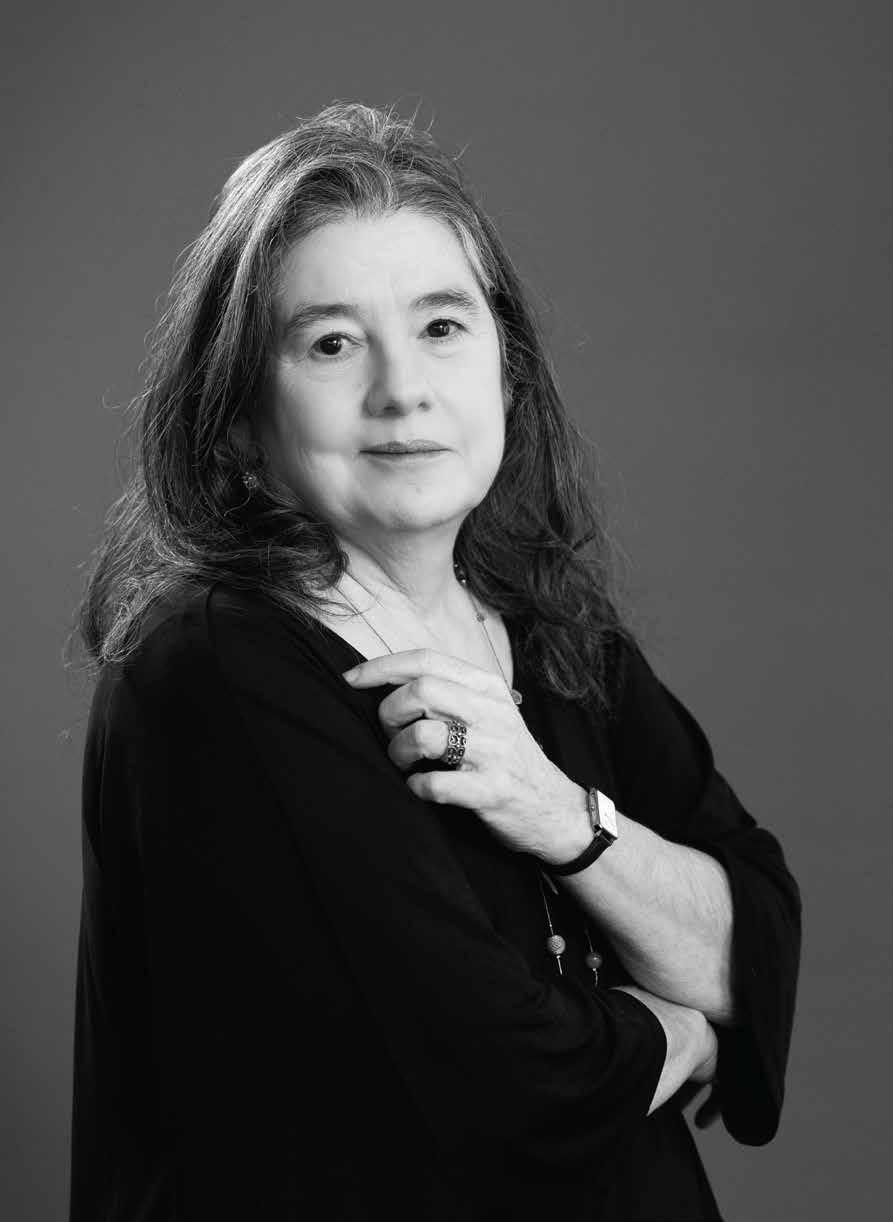

When I joined the University of the Witwatersrand in late 2017 as a lecturer in the Department of Political Studies, I had the privilege of meeting Professor Ruksana Osman, who was then serving as Dean of the Faculty of Humanities. From our very first encounter, I was struck by her charisma, her unwavering commitment to academic excellence, and her genuine desire to effect meaningful change within the university. What I could not have anticipated at that early stage was the profound and lasting impact her mentorship would have on my academic trajectory.
Professor Osman made the mentorship of early career scholars a central pillar of her deanship, and I was exceptionally fortunate to be among those she chose to support. Her approach to mentorship was characterised by an authenticity that is rare in academic leadership. Her door was always open, not as a mere platitude, but as a lived practice. She created a space where I could seek guidance, voice concerns, and engage in honest dialogue about the challenges and possibilities of academic life. This accessibility, combined with her incisive intellect and strategic thinking, provided me with invaluable support during the formative years of my career.
What distinguished Professor Osman's accessibility was its consistency and genuineness, even amid the extraordinary demands of senior leadership. Despite managing the complexities of a large faculty and, later, broader institutional responsibilities, she invariably made time to acknowledge a new publication, to read an academic draft I sent her, and to offer thoughtful feedback. In an academic culture often characterised by careerism and transactional relationships, her willingness to engage meaningfully with the work of junior colleagues was remarkable. This attentiveness communicated a message far more powerful than any formal mentorship programme could: that my scholarship mattered, that my development was worthy of her time, and that genuine collegiality could coexist with hierarchical structures. Such qualities are exceedingly rare in contemporary academia, and they speak to Professor Osman's fundamental understanding that leadership is ultimately about enabling others to flourish.
Professor Osman's mentorship extended far beyond pastoral care. She actively encouraged me to pursue opportunities for research development and, on several occasions, urged me to apply for competitive funding schemes. In 2018, through her encouragement and guidance, I was awarded two substantial Early Career Mellon Research Grants. These grants proved critical not only to my research productivity but also to my development as an independent scholar and my academic mobility within the field. Professor Osman understood that early career researchers require both intellectual guidance and material support to thrive, and she worked tirelessly to ensure that scholars like myself had access to both.
Her commitment to nurturing emerging scholars also manifested in collaborative opportunities. I had the honour of contributing a co-authored chapter to one of her edited Springer volumes on complex pedagogical contexts, drawing from my experience of teaching political theory at Wits. This collaboration provided me new insights into academic publishing and scholarly networks. Indeed, Professor Osman's mentorship has been instrumental in shaping my scholarly trajectory, which has culminated in my current appointment as a British Academy International Fellow at SOAS, University of London, where I am undertaking a three-year fellowship, a testament to the enduring impact of her investment in my development.
Beyond her personal mentorship, Professor Osman has demonstrated exceptional leadership throughout her over twenty years in senior management at Wits, progressing from Dean to Deputy Vice-Chancellor. Her tenure has coincided with some of the most challenging periods in South African higher education, including the student protests that demanded fundamental institutional transformation. Throughout these tumultuous times, Professor Osman remained resolute and principled, navigating complexity with both courage and compassion. Her leadership style, characterised by accessibility, honesty, and strategic vision, has left an indelible mark on the institution.
Professor Osman's scholarly contributions have consistently foregrounded the development of research and innovation within the Global South context. Her work demonstrates a deep commitment to epistemic justice and to creating conditions in which African scholarship can flourish on its own terms. Crucially, she has been an unwavering champion of transformation, particularly dedicated to advancing the careers of young Black women scholars. In doing so, she has not merely advocated for equity in abstract terms but has actively worked to dismantle barriers and create pathways for those historically excluded from academic leadership.
As we honour Professor Osman's distinguished career, we celebrate not only her institutional achievements but also the countless lives she has touched and the futures she has helped to shape. Her legacy is evident in the trajectories of the many scholars and professionals who have benefited from her wisdom, generosity, and steadfast belief in our potential. Wits University has been profoundly fortunate to have such an exceptional leader, and I am privileged to count myself among those whose careers bear the imprint of her mentorship.
Her legacy is written in the lives she’s touched.
Dr. Ayesha Omar

I have known Professor Osman for more than 20 years at the time that we started our PhDs in the School of Education at Wits. Her positive energy, contributing nature, humility and accessibility have always struck me in every conversation we have ever had. She has a knack for choosing the right people for the right positions in the university and has a sharp eye for institutional building. In my experience of her, she has never chosen the easy, straightforward path. She has been a trailblazer and a great inspiration to me. She has done what many think is impossible, she has excelled as an academic and leading scholar in her field, while also being an sterling
administrator, manager, and leader not only at Wits, within the higher education sector in South Africa, and globally as the UNESCO Chair in Teacher Development. I have over the past few years, intentionally turned to Professor Osman for mentorship and guidance, as what she has done speaks to the kind of leader I believe must be celebrated.
The Chancellor of Wits, Dr July Dlamini, often quotes Toni Morrison when she says: what's most memorable about someone is how they make you feel. This is what we tend to remember, I believe, because it strikes a chord in our heart and soul. It is in this way that we build connection. And so, it is far less about what someone says or does. Professor Osman is one such leader. After a conversation with her, I have always felt listened to, understood, recognised, and strengthened and enthused with the feeling that better is possible.
Her leadership goes beyond herself as an individual and beyond individualism. She has always gone about making a difference in her own way, quietly, consistently, and impactful. She recognises the importance of what it means to see people, and it is this that makes her very special, especially in the world in which we live, where voices that differ are ignored, suppressed, and decimated. She understands that leadership is about ethics, critical engagement, integrity, honesty, working with others collaboratively and collectively, and building large, impactful change systems that make a difference in everyone’s life. She is generous with her time, her ideas, her scholarship, and her advice on matters of a personal nature too, and these matters. I know this from my own personal experience of loss and grieving, and what a caring and supportive leader she is.
Reporting to Professor Osman from the Transformation Office at Wits was an empowering, trusting, and expansive relationship in which we grew by leaps and bounds and built systemic confidence in the work we do. Trust, the truth, and relational leadership are sparse, and Professor Osman authentically lives these cardinal character traits through her leadership. As the Transformation Office, we have always valued the trust she bestowed upon us and how that enabled us to build confidence and capacity and a deep desire to serve.
Wits is fortunate that she loves Wits. She could be anywhere, leading as the Vice-Chancellor of a university, yet she chose to remain with us at Wits. I feel very blessed and proud to say that I have the good fortune of sharing space and time with her.
Boastful, bashful, individualist leadership is widespread in our society and Professor Osman presents a powerful, alternative pole of leadership which ordinary people desire. If she were to stand in the next national elections, I would not hesitate to put the future of my children and this nation in her hands.
Dr. Bernadette Johnson, Executive Director for Transformation & Employment Equity Office
Professor Osman presents a powerful, alternative pole of leadership which ordinary people desire.

Dr. Bernadette Johnson
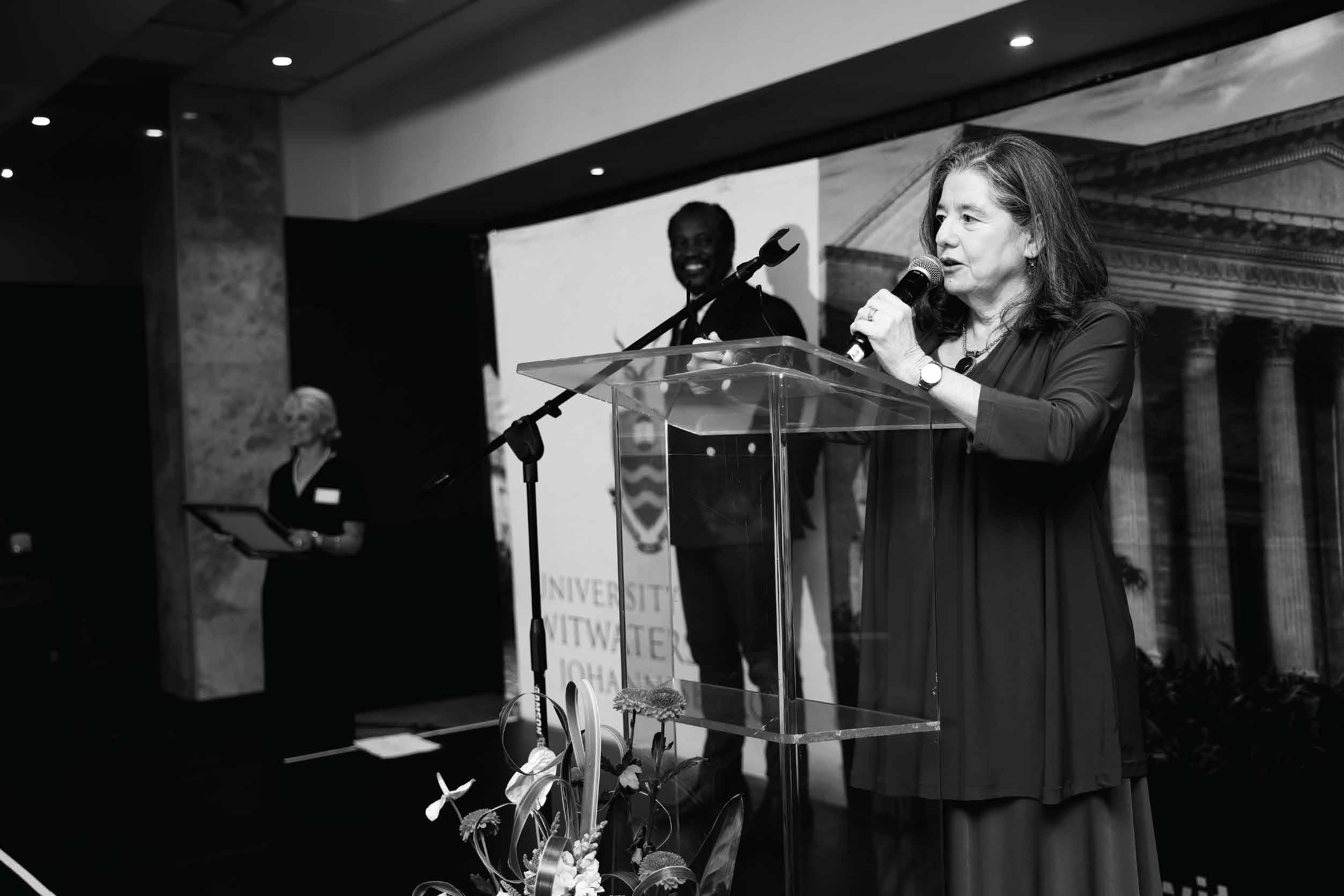
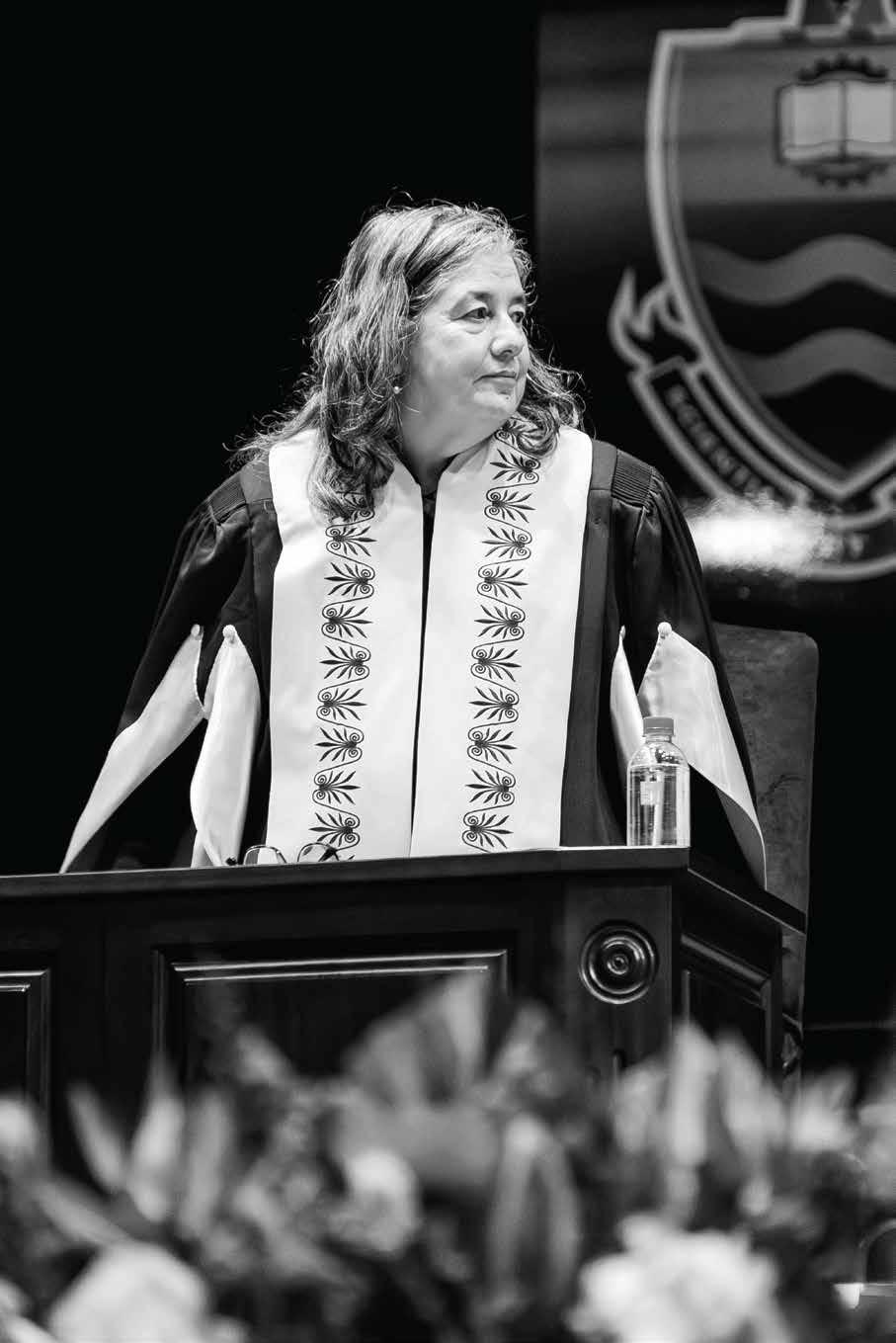

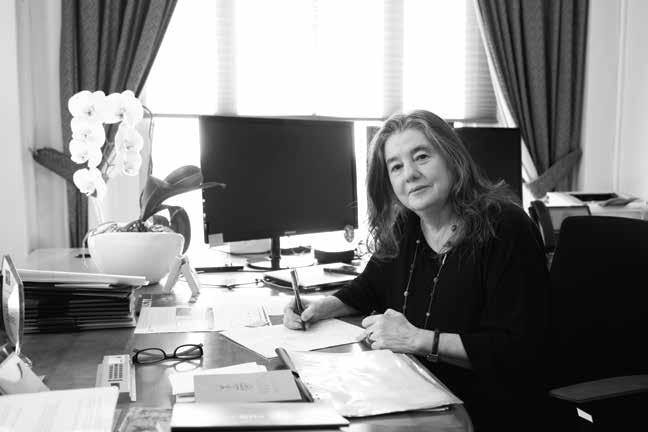
This tribute celebrates the life and legacy of Professor Ruksana Osman, an extraordinary scholar, leader, and mentor whose influence has transformed the University of the Witwatersrand and inspired generations across Africa and beyond.
Through heartfelt reflections from colleagues, students, and collaborators, the book captures the essence of a woman who leads with intellect, compassion, and integrity. From her early days as a teacher to her role as Senior Deputy Vice-Chancellor, Professor Osman has embodied excellence grounded in empathy and purpose.
Each story reflects her unwavering belief in people, her ability to see potential, nurture talent, and create spaces where others can thrive. Her legacy is one of empowerment and transformation: a leader who lifts others as she climbs, and whose quiet strength continues to shape the future of higher education.